Rain Barrel Water Safe for Veg Garden?
kristimama
15 years ago
Featured Answer
Comments (68)
icyveins
15 years agolast modified: 9 years agodianasvolba_gmail_com
15 years agolast modified: 9 years agoRelated Discussions
windshield washer rain barrels safe ?
Comments (2)Hi nbreau, There are no guarantees here. If you want to have a more secure and greater knowledge of what your water is made of, then do all the washing and rinsing and take a sample and have it analyzed for heavy metals and other pollutants. The plants do not uptake anything that would be detrimental to you. I believe your pretty safe if you wash and rinse out the barrels. Is there antifreeze in the fluid for cold climates? Then wash and rinse very well. JMHO. GL...See MoreTap water in rain barrels + newbie questions
Comments (2)TML, 1. Chlorine from water is not a problem. CL2 dissipates from tap water within a day and not harmful in the concentration in drinking water to plants. SWCs would be even less so. 2. Every foot of vertical height of water equals roughly 0.5 psi. So to push water 12 feet, you need 6 psi + 20%. Have the barrels raised on the 1st floor somehow. Otherwise a pump that produces 25 psi and what ever flow rate you need. Even rig up the pump to come on when the water level in the SWC gets to a certain level. JMHO Aloha...See MoreAutomatic Watering From Rain Barrels
Comments (1)Wow you sound pretty far along already. I know there are humidity monitors which will send an electric signal because I have seen them . . . but where ??? I would try a landscaping business maybe on the web that specialized in drip irrigation. Our drip system has an automatic freeze or rain sensor so our system won't go on in those cases. It can't be that hard to have a soil moisture device inserted for feedback....See Morerain barrel safe ?
Comments (15)"you are what you eat" Obnoxious (but true) slogans aside, those barrels could have contained ANYTHING. From Medline: "Windshield washer fluid is a brightly colored liquid made of methanol, a poisonous alcohol. Sometimes small amounts of other toxic alcohols such as ethylene glycol are added to the mixture...Some young children may mistake the fluid for juice, which can lead to accidental poisoning. Even small amounts can cause significant damage." The barrels will not be poisonous at all, as long as you believe that there is an exposure threshold you're not exceeding. However, we are exposed to toxic chemicals constantly day after day and I believe that it's not a good idea to deliberately add more crap to that (very thin but real) toxic assault. You gotta draw a line somewhere, and using a castoff from the chemical industry to saturate food plant roots is just asking for trouble....See MoreKimmsr
15 years agolast modified: 9 years agosandhill_farms
15 years agolast modified: 9 years agojockey16
15 years agolast modified: 9 years agooregon_veg
15 years agolast modified: 9 years agosmokensqueal
15 years agolast modified: 9 years agoKimmsr
15 years agolast modified: 9 years agoleaveswave
15 years agolast modified: 9 years agotomakers
15 years agolast modified: 9 years agoorganicguy
15 years agolast modified: 9 years agogardenlen
15 years agolast modified: 9 years agorsrey
14 years agolast modified: 9 years agoMichael
14 years agolast modified: 9 years agogjcore
14 years agolast modified: 9 years agoskagit_goat_man_
14 years agolast modified: 9 years agogardenlen
14 years agolast modified: 9 years agolarry77rn
14 years agolast modified: 9 years agostevesd
14 years agolast modified: 9 years agogreenleaf_organic
14 years agolast modified: 9 years agobeankrom
13 years agolast modified: 9 years agocalifornian
13 years agolast modified: 9 years agobeankrom
13 years agolast modified: 9 years agoKimmsr
13 years agolast modified: 9 years agoend3
13 years agolast modified: 9 years agojohnlvs2run
13 years agolast modified: 9 years agoMichael
13 years agolast modified: 9 years agowaterfil_slowsandfilter_org
13 years agolast modified: 9 years agobsntech
13 years agolast modified: 9 years agobuford
13 years agolast modified: 9 years agoga_karen
13 years agolast modified: 9 years agoleaveswave
13 years agolast modified: 9 years agoleaveswave
13 years agolast modified: 9 years agodaylilyfanatic4
13 years agolast modified: 9 years agoGreenRalph
11 years agolast modified: 9 years agogardenlen
11 years agolast modified: 9 years agoparrish97
11 years agolast modified: 9 years agogardenlen
11 years agolast modified: 9 years agodagger666
11 years agolast modified: 9 years agoacer60
11 years agolast modified: 9 years agoericengelmann
11 years agolast modified: 9 years agonc_crn
11 years agolast modified: 9 years agogreenleaf_organic
11 years agolast modified: 9 years agosharonbrink
8 years agomchilds83
8 years agomchilds83
8 years agogillcharalambous420
8 years agokimmq
8 years agogillcharalambous420
8 years ago
Related Stories
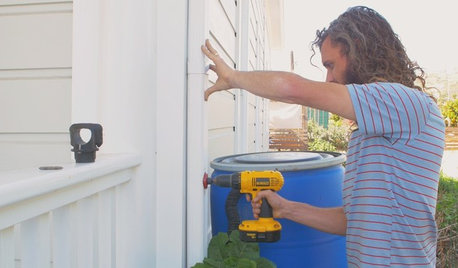
HOUZZ TVHouzz TV: How to Install a Rain Barrel
This DIY tutorial shows how easy it can be to capture rainwater from your roof to use in your garden later
Full Story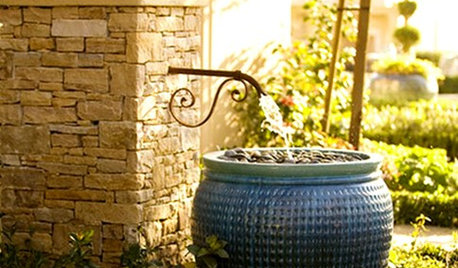
GREEN BUILDINGJust Add Water: Rain Barrel Magic
Take your rainwater storage from practical to beautiful with a new breed of design-friendly rain barrels
Full Story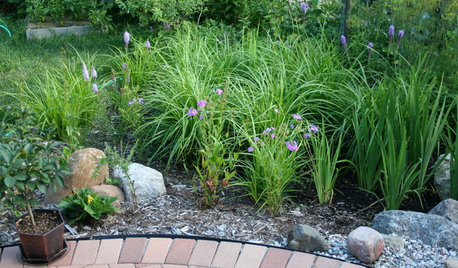
LANDSCAPE DESIGNHow to Site and Size a Rain Garden for Your Landscape
Installing a rain garden is an excellent way to reduce runoff and return water to its source
Full Story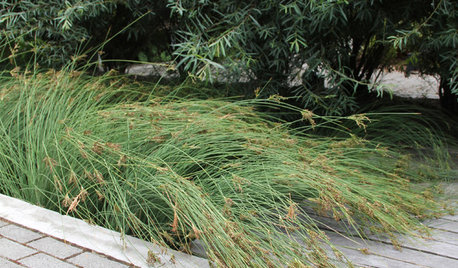
GARDENING GUIDESProtect a Precious Resource With a Rain Garden
Promote pure water and a beautiful landscape with a garden design that makes the most of the rain
Full Story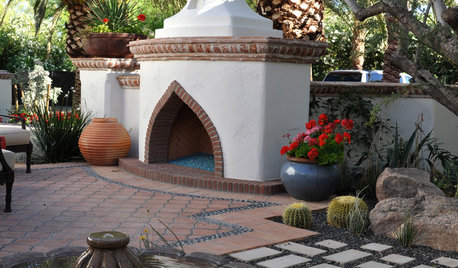
GARDENING GUIDESCreate a Fire-Safe Garden — With Style
Defend your home against wildfire with a well-planned mix of plants, materials and open space
Full Story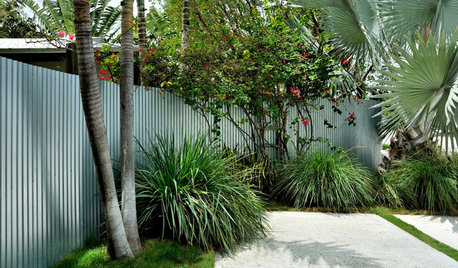
MATERIALSHumble Corrugated Metal Brings Modern Style to the Garden
This sustainable material is not just for rooftops. See these ideas for using it for fences, beds and rain barrels in your yard
Full Story
SAVING WATERXeriscape Gardens: How to Get a Beautiful Landscape With Less Water
Conserve water and make gardening much easier with the xeriscape approach’s 7 principles
Full Story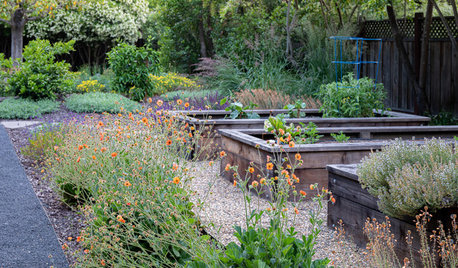
GARDENING GUIDESEssential Watering Tips for Your Edible Garden
To give your edible plants just what they need, check out these guidelines for how, when and how much to water
Full Story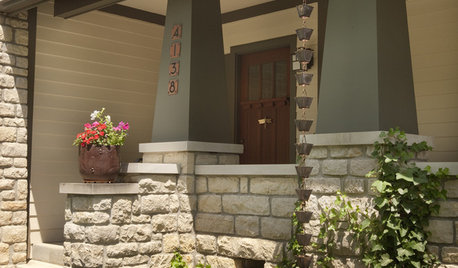
GARDENING AND LANDSCAPINGDesign With Weather: Introduce a Rain Chain
Create something beautiful with the runoff from your roof
Full Story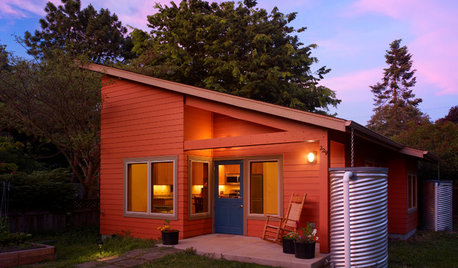
GREEN BUILDINGHow to Harvest Rainwater for Your Garden
Conserve a vital resource and save money by collecting stormwater for irrigation in a barrel or tank
Full Story



shaxhome (Frog Rock, Australia 9b)